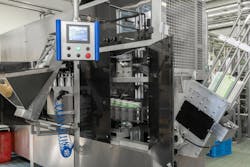Advantages and Disadvantages of Different Programming Languages
While programmable logic controllers (PLCs) have long been the cornerstone of industrial control systems due to their robustness in harsh environments, industrial PCs (IPCs) are increasingly bridging the gap between traditional PLCs and personal computers (PCs).
IPCs offer the processing power and memory capacity of a standard PC but are built to withstand the rigors of an industrial environment. This allows for the use of high-level programming languages, customized graphical user interfaces, and the capability to run multiple software applications simultaneously, which is particularly advantageous for complex SCADA systems.
However, Control Design highlights a critical consideration for automation engineers: While IPCs offer significant flexibility and advanced features, they are fundamentally PCs with operating systems that may become obsolete faster than the dedicated, long-lasting operating systems of PLCs. This means that although IPCs provide a powerful platform for advanced control applications, engineers must carefully evaluate the long-term viability and maintenance implications of integrating IPCs into their control systems.
The potential for rapid technological change could impact the longevity and stability of these systems compared to the more time-tested PLCs.
Learn more in this article from Control Design, an Automation World partner publication.

